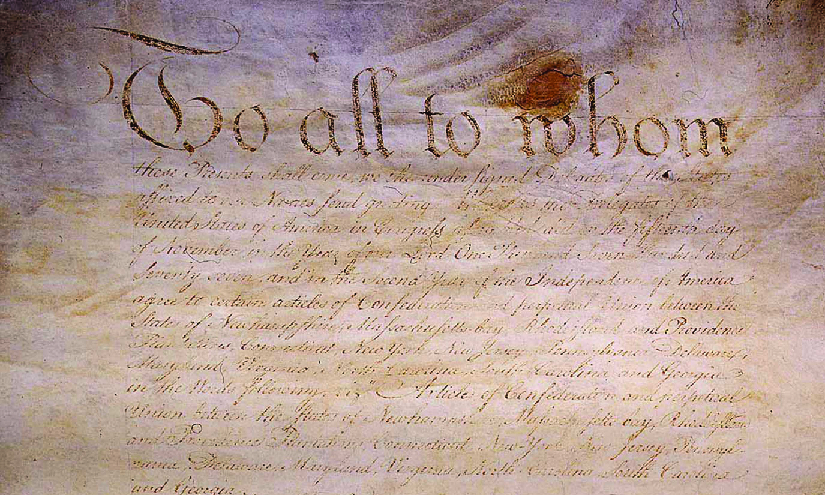| << Chapter < Page | Chapter >> Page > |
Given the inherent weaknesses in the system set up by the Articles, in 1787 the delegates came together once again to consider amendments to the Articles, but they ended up instead considering a new design for the government ( [link] ). To produce more long-term stability, they needed to establish a more effective division of power between the federal and state governments. Ultimately, the framers settled on a system in which power would be shared: The national government had its core duties, the state governments had their duties, and other duties were shared equally between them. Today this structure of power sharing is referred to as federalism .

The Constitution allocated more power to the federal government by effectively adding two new branches: a president to head the executive branch and the Supreme Court to head the judicial branch. The specific delegated or expressed powers granted to Congress and to the president were clearly spelled out in the body of the Constitution under Article I, Section 8, and Article II , Sections 2 and 3.
In addition to these expressed powers, the national government was given implied powers that, while not clearly stated, are inferred. These powers stem from the elastic clause in Article I , Section 8, of the Constitution, which provides Congress the authority “to make all Laws which shall be necessary and proper for carrying into Execution the Foregoing powers.” This statement has been used to support the federal government’s playing a role in controversial policy matters, such as the provision of healthcare, the expansion of power to levy and collect taxes, and regulation of interstate commerce. Finally, Article VI declared that the U.S. Constitution and any laws or treaties made in connection with that document were to supersede constitutions and laws made at the state level. This clause, better known as the supremacy clause , makes clear that any conflict in law between the central (or federal) government and the regional (or state) governments is typically resolved in favor of the central government.
Although the U.S. Constitution clearly allocated more power to the federal government than had been the case under the Articles of Confederation, the framers still respected the important role of the states in the new government. The states were given a host of powers independent of those enjoyed by the national government. As one example, they now had the power to establish local governments and to account for the structure, function, and responsibilities of these governments within their state constitutions. This gave states sovereignty, or supreme and independent authority, over county, municipal, school and other special districts.
States were also given the power to ratify amendments to the U.S. Constitution. Throughout U.S. history, all amendments to the Constitution except one have been proposed by Congress and then ratified by either three-fourths of the state legislatures or three-fourths of the state conventions called for ratification purposes. This process ensures that the states have a voice in any changes to the Constitution. The Twenty-First Amendment (repealing the Eighteenth Amendment’s prohibition on alcohol) was the only amendment ratified using the state ratifying convention method. Although this path has never been taken, the U.S. Constitution even allows for state legislatures to take a direct and very active role in the amendment proposal process. If at least two-thirds of the state legislatures apply for a national convention, constitutional amendments can be proposed at the convention.

Notification Switch
Would you like to follow the 'American government' conversation and receive update notifications?